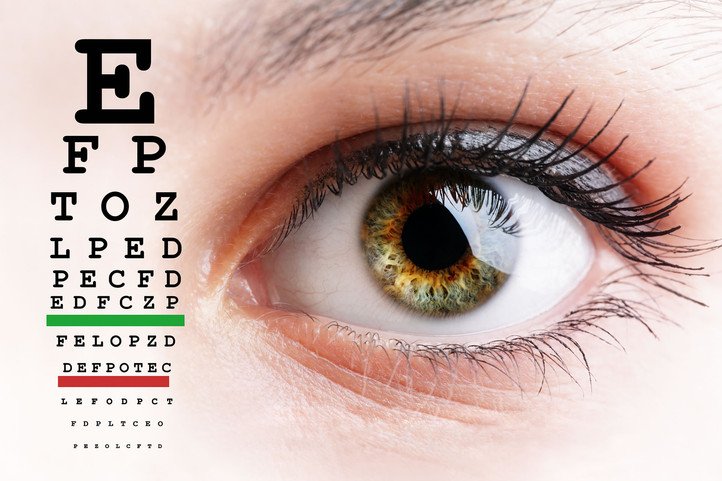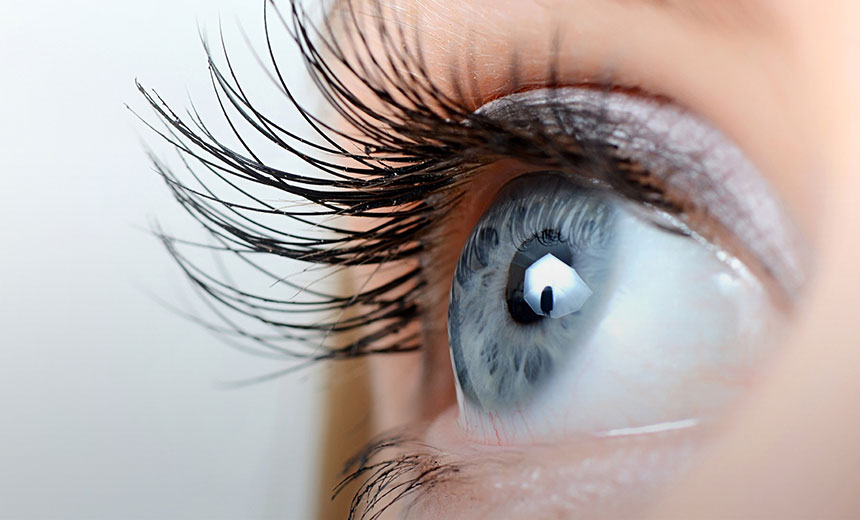
Our eyes are among the most valuable organs in the body, allowing us to see, learn, and experience the world around us. Yet, many people take eye health for granted until vision problems appear. Whether it’s digital eye strain, dryness, or age-related issues, caring for your eyes daily can make a lasting difference in preserving clear and healthy vision.
In this article, we’ll explore what good eye health means, the common factors that affect it, and practical steps to keep your eyesight sharp for years to come.

Understanding Eye Health
Eye health refers to the overall condition and functionality of your eyes—how well they focus, adjust to light, and maintain comfort. Healthy eyes not only ensure clear vision but also protect you from conditions like dryness, irritation, or long-term vision loss.
Your eyes work tirelessly from morning till night, adjusting to light, focusing on objects near and far, and interpreting countless images every second. Supporting them through proper nutrition, rest, and lifestyle habits can prevent discomfort and deterioration over time.
Common Causes of Poor Eye Health
Our modern lifestyle exposes our eyes to several challenges. Understanding these factors is the first step toward protecting them:
Excessive Screen Time – Staring at phones, computers, or TVs for long hours leads to digital eye strain, causing dryness, headaches, and blurred vision.
Lack of Sleep – Fatigue can make your eyes feel heavy, red, and irritated.
Poor Nutrition – A diet lacking essential vitamins like A, C, and E can weaken your vision.
Dehydration – Inadequate water intake can cause dryness and discomfort.
Age-Related Changes – Over time, natural wear and tear can affect eyesight if not supported with good habits.
Environmental Factors – Pollution, dust, and UV exposure can irritate and damage delicate eye tissues.
By recognizing these causes, you can take proactive steps to safeguard your eye health before problems develop.
Signs Your Eyes May Need More Care
Your body often gives signals when your eye health is being compromised. Common symptoms include:
Frequent eye strain or headaches
Blurry or double vision
Sensitivity to light
Watery, itchy, or dry eyes
Difficulty focusing on nearby objects
Redness or discomfort after using screens
If you notice any of these signs, it’s a reminder to rest your eyes and review your daily habits.
Daily Habits to Support Eye Health
Maintaining good eye health doesn’t require complicated routines—just simple, consistent habits that protect and strengthen your vision naturally. Here are some key practices:
1. Follow the 20-20-20 Rule
When using digital screens, every 20 minutes, look at something 20 feet away for at least 20 seconds. This quick exercise helps relax eye muscles and prevent strain. It’s especially important for people who work on computers or use smartphones frequently.
2. Eat Vision-Boosting Foods
What you eat directly affects your eye health. Include foods rich in antioxidants, vitamins, and minerals that nourish your eyes from within. Some excellent choices include:
Carrots and sweet potatoes (Vitamin A for clear vision)
Leafy greens like spinach and kale (lutein and zeaxanthin for retina protection)
Citrus fruits (Vitamin C for blood vessel health)
Fish such as salmon and tuna (omega-3 fatty acids for tear production)
Nuts and seeds (Vitamin E for cell protection)
These nutrient-rich foods strengthen the eyes and may reduce the risk of age-related vision problems.
3. Stay Hydrated
Dry eyes are often caused by dehydration. Drinking plenty of water helps maintain proper tear production and keeps your eyes comfortable and moist. Limit caffeine and alcohol, as they can contribute to dryness.
4. Protect Your Eyes from UV Rays
Just like your skin, your eyes can be damaged by ultraviolet (UV) radiation. When outdoors, wear sunglasses with UV protection or a wide-brimmed hat to reduce glare and exposure. Long-term protection can prevent damage that leads to cataracts or macular issues.
5. Take Regular Screen Breaks
Continuous screen use can exhaust your eyes. Try to take short breaks every hour to stretch, blink, and rest your vision. You can also adjust your screen brightness and increase font size to make reading more comfortable.
For more eye health tips, visit OptiPlax .
6. Get Enough Sleep
Your eyes recover and repair themselves while you sleep. Lack of rest can lead to puffiness, dark circles, and dryness. Aim for 7–9 hours of sleep each night to give your eyes the recovery time they need.
7. Keep Your Hands and Face Clean
Avoid touching your eyes frequently, especially with unwashed hands, as it can introduce bacteria or irritants. Always remove makeup before sleeping, and clean your lenses or glasses regularly to reduce eye infections and irritation.
8. Blink More Often
Blinking keeps your eyes moist and helps prevent dryness, especially when focusing on screens. Make a conscious effort to blink regularly when reading, watching videos, or working on a computer.
9. Exercise Regularly
Physical activity improves blood circulation, ensuring your eyes receive adequate oxygen and nutrients. It also helps manage conditions like high blood pressure and diabetes, which can affect eye health if uncontrolled.
Lifestyle Adjustments for Long-Term Eye Health
Your lifestyle plays a significant role in how your vision evolves over time. Here are some ways to maintain strong eyesight for life:
Avoid smoking – Tobacco toxins can damage eye tissues and reduce blood flow.
Manage stress – High stress affects sleep and concentration, indirectly harming eye comfort.
Eat balanced meals – Regularly include vitamins A, C, and E, along with zinc and omega-3s.
Stay active – Exercise supports overall health and circulation.
Practice good posture – Keeping screens at eye level helps reduce strain.
Small daily actions can go a long way in preserving your eye health and preventing vision decline as you age.
The Role of Rest and Relaxation
Just like the body, your eyes need rest. Overuse can lead to fatigue, headaches, and decreased productivity. To relax your eyes:
Gently close them for a few minutes every few hours.
Place a warm compress on your eyelids to soothe dryness.
Use dim lighting in the evening to reduce strain from bright artificial lights.
These small habits promote recovery and maintain comfort throughout the day.
Natural Remedies to Relieve Eye Strain
If you spend long hours reading or on digital devices, natural care can help ease tension:
Cold water splash – Refreshes the eyes and reduces puffiness.
Cucumber slices or tea bags – Help soothe irritation and dryness.
Palming technique – Rub your hands together to generate warmth and place them gently over closed eyes to relax the muscles.
These remedies offer quick relief and support overall eye health naturally.
When to Seek Professional Help
While most eye issues can be managed through healthy habits, it’s important to schedule routine eye check-ups. Professionals can detect early signs of problems before they become serious. If you notice sudden vision changes, persistent pain, or flashes of light, consult a specialist promptly.
Regular exams ensure that your eyes stay in good condition and that any developing concerns are addressed early.
Conclusion
Caring for your eye health should be part of your daily self-care routine. Your eyes work tirelessly every day, and giving them the attention they deserve helps you maintain clear, comfortable vision for life.
From eating nutrient-rich foods and taking screen breaks to protecting your eyes from UV rays, every small step counts toward long-term vision health. Start today—your future self will thank you.
For more eye health tips, visit OptiPlax .

